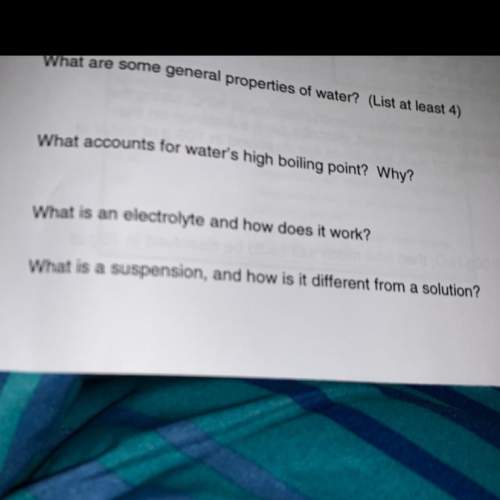
Chemistry, 18.10.2021 20:10 liaholmes8
In practice, chemists rarely try to measure out a specific mass. Instead, they estimate the mass required and spoon out the mass approximately. Then they measure the mass of the sample precisely and convert it into an amount in moles to find the precise amount that they have obtained. Why do chemists typically not want to measure out very precise, predetermined masses when making up solutions?

Answers: 3


Other questions on the subject: Chemistry

Chemistry, 22.06.2019 05:30, jameskarbar9p8c9d2
Match the following vocabulary terms to their definitions. 1. amount of energy required to change 1 gram of material from the solid to the liquid state at its melting point 2. a measure of the kinetic energy of the particles of a substance 3. the amount of heat energy required to raise the temperature of 1 gram of liquid water from 14.5°c to 15.5°c 4. amount of energy required to change 1 gram of material from the liquid to the gaseous state at its boiling point 5. the amount of energy required to change 1 gram of a substance 1°c a. temperature b. latent heat of vaporization c. latent heat of fusion d. calorie e. specific heat
Answers: 1


Chemistry, 22.06.2019 19:50, VoidedAngel
When the mercury level in a barometer decreases that atmospheric pressure has
Answers: 3
You know the right answer?
In practice, chemists rarely try to measure out a specific mass. Instead, they estimate the mass req...
Questions in other subjects:


Mathematics, 24.04.2020 18:34





Chemistry, 24.04.2020 18:34






